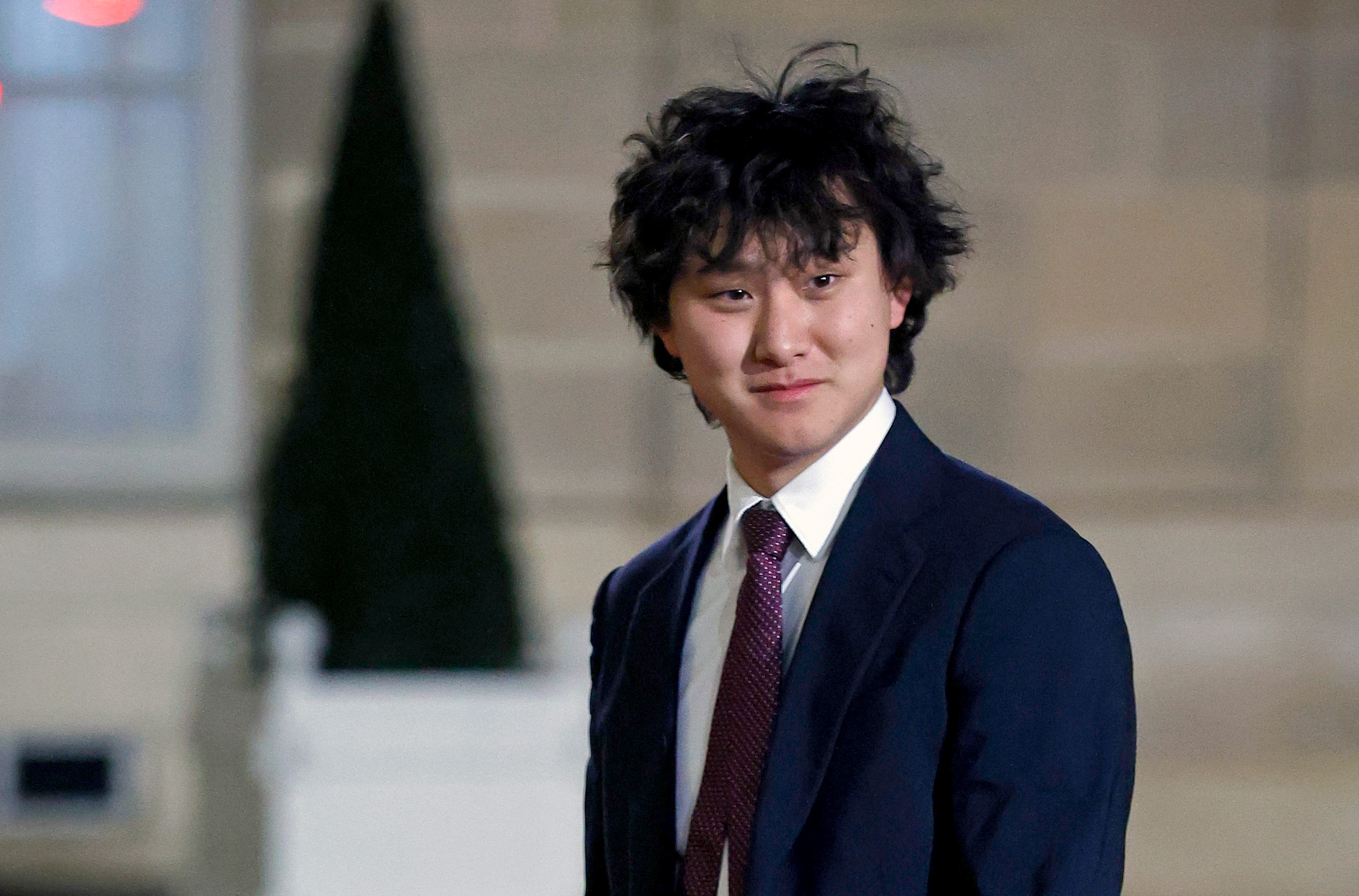
Lucy Guo got into the artificial intelligence industry early, co-founding software provider Scale AI nine years ago. It made her a billionaire by the time she was 30.
Now the Carnegie Mellon University dropout is building another business, Passes Inc., a platform where celebrities like Olivia Dunne and Bella Thorne can help turn fame into fortune by connecting directly with their fans. But this time, Guo is running into well-established competitors and legal challenges in a business where success is far from certain.
Backed by $50 million in funding since its December 2022 launch, Passes is vying in a field that's already crowded. Patreon is known for working with podcasters, while Cameo, a former highflier, focuses on celebrities and OnlyFans is big in porn. Passes is between those poles. It's used mainly by influencers already popular on TikTok and Instagram, and the content tends to be edgy. Guo says its strength is service.
“We just want to be like a superfan club for creators,” Guo, Passes' chief executive officer, said in an interview. Her aim is to provide influencers “the entire infrastructure to be a business.”
Passes' headquarters in West Hollywood, California, scream Tinseltown. Beyond the pink neon sign in the center of the office, there's a bar fit for a nightclub and a floor-to-ceiling water feature. Guo's aim is to capture the vibe of social media's biggest stars — the Instagram, TikTok and Snapchat influencers who make money by advertising products, in between sharing videos of their daily lives — and to have the facilities they need for their work.
Passes' founder grew up building social apps and starting companies. Raised in Fremont, California, she started coding early, creating arcade games and virtual pet websites before studying computer science and human-computer interaction in college.
She dropped out after landing a Thiel Fellowship in 2014, obtaining funding to develop a food delivery app. She also did stints at Facebook, Snapchat and the knowledge-sharing site Quora.

Alexandr Wang
At 22, Guo joined with Quora associate Alexandr Wang to co-found Scale AI. The company, which labels the data that AI companies use to train their chatbots, recently sold a 49% stake to Meta Platforms Inc. for $14.3 billion. The co-founders had a falling out, Bloomberg reported earlier. Guo left in 2018, but her share made her a billionaire.
As Guo was searching for her next project, she started hearing from influencer friends who were struggling to make a living from one-off endorsement brand deals. Many were turning to subscription platforms like Patreon, which offer regular, monthly payouts.
“You could do a brand deal and you might not get paid out for like six months,” Guo said. “Brand deals are super inconsistent.”
Guo texted a few investors, telling them she wanted to create the next version of Patreon. Within 24 hours, she had raised a few million dollars.
The company, like Patreon, helps creators make money by charging fans for access to exclusive content, such as video chats, one-on-one calls and direct messages. Creators typically keep about 90% of the money. As of February 2024, Guo said, Passes had paid out tens of millions of dollars to about 1,000 creators.
Alyssa McKay, a lifestyle influencer with over 10 million followers on TikTok, uses Passes to connect directly with her fans and share exclusive content, such as a tour of her new house.
“It allows me to create a unique and specialized experience with my audience,” McKay said. “I was so surprised and moved with how many people subscribed just to see the first look of me being a first-time homeowner.”
Guo attributes the app's popularity to its technology, such as using AI to test which photos or videos will get fans to pay, and its hands-on approach. The office doubles as a sort of “Soho House for creators,” she said, with a podcast studio, photo room and, soon, a recording studio. Passes' 50 employees help influencers shoot videos or design merchandise.
“If you walk into Forever 21 you're not getting the same treatment as you do when you walk into like Hermès,” Guo said. “And like, we give that Hermès-level service to our creators.”

Lucy Guo at Passes' Lucypalooza in Los Angeles in 2023.
That high-end focus carries over to Guo's personal life. She's thrown parties at Coachella, been spotted with celebrities such as Billie Eilish and Charli XCX, and in 2023 staged a Passes-hosted birthday party for herself dubbed “Lucypalooza.”
Based in Miami at the time, Passes that year raised $9 million from a group of investors led by Multicoin Capital and acquired Fanhouse, an Andreessen Horowitz-backed startup that helps creators monetize their audiences. The acquisition added employees and creators who were using the platform. Passes had only about 40 creators at the time.
Today, Passes remains far behind Patreon, which has over 100 million memberships, and OnlyFans, which boasts nearly 380 million fan accounts. To keep growing, Guo began guaranteeing creators' incomes if they switched from other platforms, offering some as much as $500,000, according to a person familiar with the agreements.
“There's a lot of competitors in this arena,” said Andrew Graham, head of business development for digital media at Creative Artists Agency. “In many instances, they get business just because they're the ones willing to put up money.”
In January 2024, the creator app Fanfix sued Passes, alleging the company stole confidential information in order to poach clients. Fanfix also accused the company of selling content below cost and making misleading claims about how much money creators were earning by boosting payouts with temporary cash incentives.
According to Guo, Passes offered creators minimum guarantees of two times their income, but on average they saw their revenue grow sevenfold. She denied that Passes was losing money and said the company was profitable at the time.
“I think it's a one-sided beef, like, it's not true, we got no trade secrets,” she said. “They lost like every motion they filed.”
A lawyer representing Fanfix said the case is active and ongoing.
The suit didn't slow the startup's growth. In February 2024, Passes raised $40 million from investors led by Bond Capital.
Passes long had a reputation for allowing edgier content than some other subscription apps for influencers. It allows bikini pictures and suggestive photos but bars nudity or explicit sexual content, according to company policies.
Until recently, Passes allowed creators between the ages of 15 and 17 to sell content on the site. But those policies were changed in February, the same month the company was hit by a class action lawsuit alleging distribution of child pornography.
The suit was led by Alice Rosenblum, an OnlyFans creator who was 17 at the time she joined Passes. Rosenblum alleged Passes employees, including a former Fanfix employee, recruited her to create sexually explicit content and then marketed it to users on the site, even though she was underage. The suit also alleges Guo overrode safety controls designed to protect underage creators.
“The lawsuit, at least as it is related to Passes AND myself, is utterly meritless,” Guo said in a lengthy response on X at the time. “The conduct described in the complaint is a direct violation of our terms of service, content guidelines, and everything Passes stands for.”
Guo maintains she never met or interacted with Rosenblum, and called the case a “shakedown,” saying one of the plaintiffs' attorneys once represented her.
Lawyers representing Rosenblum didn't respond to a request for comment.
Tim Humangit, who joined Passes in September 2024 as head of trust and safety, said the company had planned to remove minors from the site before the lawsuit. At the time, he said, fewer than 1% of its creators on the site were underage. Today, the company employs about eight full-time staff and 70 contract workers based in Asia to prevent harmful content from appearing on the site.
Meanwhile, Passes has grown to millions of users and thousands of creators, several of whom have become millionaires, according to Seth Melnick, chief business officer.
To keep attracting more influencers, management plans to hire more staff and offer creators additional benefits, such as health insurance and wealth management. Guo's goal is to eventually go public.
“I see it growing much larger than Patreon,” Guo said. “Sorry Patreon.”
Essential Business Intelligence, Continuous LIVE TV, Sharp Market Insights, Practical Personal Finance Advice and Latest Stories — On NDTV Profit.























.jpg?im=FeatureCrop,algorithm=dnn,width=350)